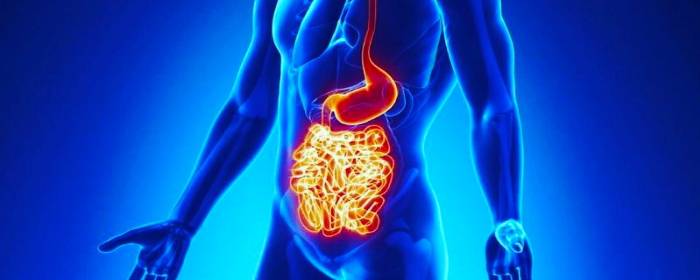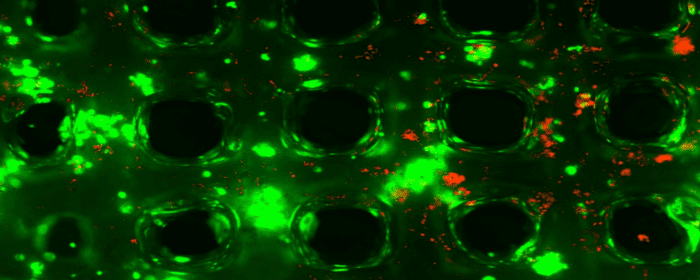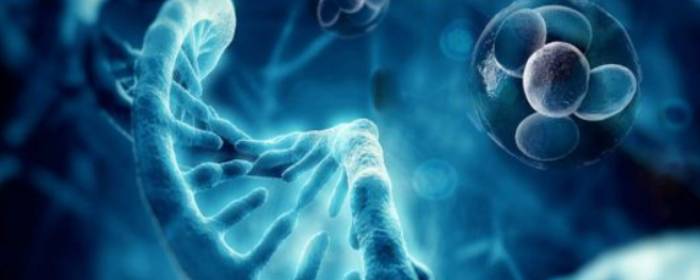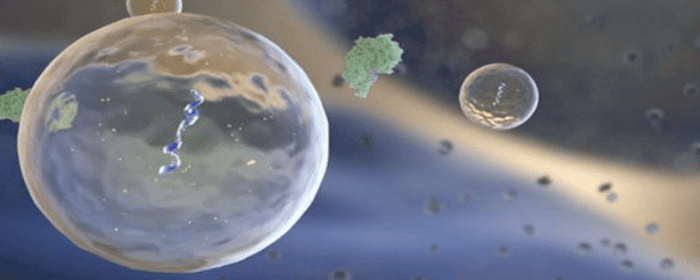
by admin | Aug 31, 2018 | Stem Cell Research, Stem Cell Therapy, Studies
Crohn’s disease is a chronic inflammatory bowel disease that has no cure. It causes abdominal pain, frequent diarrhea, weight loss, fatigue, and anemia. While the disease can be controlled to some degree through oral and injectable medications, life-threatening complications may occur.
One of the feared complications of Crohn’s disease is called a bowel fistula. A fistula is an abnormal connection between two places on the body. In Crohn’s disease, a fistula forms between the intestine and some other structure—the intestine essentially forms a “tunnel.” The fistula can form between one loop of intestine and another, between intestine and bladder, or even between the intestine and the outside of the body. This complication of Crohn’s disease is obviously quite distressing to patients.
Some bowel fistulas may close on their own with conservative treatments, but fistulas associated with Crohn’s disease do not respond well to available medical treatments. Those looking for an alternative treatment may be able to consider stem cell therapy.
Stem cells offer an interesting potential solution to this problem. Stem cells can provide a large dose of normal cells filled with molecules that can help direct normal bowel growth and development. Indeed, researchers have shown that autologous mesenchymal stem cells can help close and heal fistulas in patients with Crohn’s disease.
In phase I, II, and IIB clinical trials, stem cells derived from adipose tissue or bone marrow were directly infused into the bowel area (via a so-called intra-fistular injection). Across five clinical studies including over 100 patients, stem cell administration resulted in complete fistula healing in 50 to 80% of patients treated. Of those who did not obtain complete control fistula closure, almost all had evidence of improvement. These results support that autologous mesenchymal stem cell therapy is a promising future treatment for patients with Crohn’s disease and may offer patients enjoy a better quality of life.

by admin | Aug 28, 2018 | Stem Cell Research, Stem Cell Therapy
The evidence for the promise of mesenchymal stem cells in regenerative medicine has been growing for several years. With new sources regularly emerging, stem cells can come from a large variety of sources. Postnatal mesenchymal stem cells appear to have the most promise in regeneration. A new review has addressed how mesenchymal stem cells can be used with innovative scaffolding engineering approaches to improve techniques in regenerative medicine.
Mesenchymal stem cells are, on their own, good candidates for regeneration because of a number of characteristic features. For instance, they can differentiate into many different types of cells. Osteoblasts and chondroblasts are two cell types that mesenchymal stem cells differentiate into and that can be supported in bone regeneration by 3D-printed biomaterials like scaffolds.
Mesenchymal stem cells also can have beneficial impacts on the immune system. Unlike with other stem cell types, the severe immune reactions that may occur with the transplantation of foreign materials into the body can often be avoided with the use of mesenchymal stem cells, making them a safe option in regenerative medicine.
The current review addresses the ways in which bone regeneration can be optimized through the use of mesenchymal stem cells and scaffold engineering and how new concepts in bioengineering may be able to improve regenerative medicine in combination with mesenchymal stem cell approaches. Future research will need to focus on how we can customize regenerative approaches using what we know about mesenchymal stem cells and the most cutting-edge innovations in bioengineering.

by admin | Aug 21, 2018 | Stem Cell Therapy, Wharton's Jelly
Mesenchymal stem cells have been showing promise in the treatment of a variety of diseases and injuries. These cells are derived from different tissue types, and it appears that where the stem cells come from is indicative of how they function and how appropriate they are for use in different applications. Bone marrow-derived mesenchymal stem cells have been deeply studied and are often considered a go-to for stem cell research and clinical use.
However, there are several limitations that bone marrow-derived mesenchymal stem cells pose, particularly from a practicality standpoint, and thus, researchers have begun to try to understand how other types of stem cells may achieve similar or better results than those from the bone marrow. A recent review, published in Act Histochemical, compiled comprehensive data on the biological properties associated with a specific type of mesenchymal stem cell called Wharton’s Jelly-derived mesenchymal stem cells.
These stem cells, which come from the umbilical cord, are able to differentiate into mature cells that make up several different types of tissues and can even turn into non-mesenchymal cells, such as neurons, or brain cells. They are useful in that they spontaneously move to sites of injury or inflammation and may, therefore, be able to help restore tissue and normal functioning. They are also unlikely to instigate adverse immune system reactions.
While it is advantageous that bone marrow-derived mesenchymal stem cells have been studied extensively and therefore are associated with broad knowledge of therapeutic applicability, the cells are difficult to isolate and use. In contract, cells from the umbilical cord matrix, or Wharton’s jelly, are easy to isolate and also appear to be good candidates for therapeutic intervention. Future research should therefore look more closely at how Wharton’s jelly-derived mesenchymal stem cells can be used to treat disease and injury. As noted by the authors of this review, there are specifically dysfunctions of the central and peripheral nervous system that these stem cells may be able to address.

by admin | Aug 14, 2018 | Bone Marrow, Stem Cell Research
Colitis is inflammation of the colon, also known as the large intestine. Several things can cause colitis such as infection, medication, ischemia, or chronic inflammatory bowel disease. Inflammatory bowel diseases that affect the colon, such as ulcerative colitis or Crohn’s disease, are particularly challenging for patients. It is a chronic disease that causes cramping pain, bloody diarrhea, weight loss, fatigue, and many other chronic, challenging symptoms.
Since ulcerative colitis does not occur naturally in animals, researchers sometimes use an experimental form of colitis to mimic the disease seen in humans. This experimental colitis serves as a model to investigate treatments for inflammatory bowel disease. Essentially, researchers create a situation in which mice develop a condition that looks very much like ulcerative colitis. They develop inflammation in the large intestine, along with signs of oxidative stress and cell death. Conversely, treatments for ulcerative colitis reduce or prevent inflammation, oxidative stress, and cell death in the colon of these experimental mice.
Researchers used this model of experimental colitis to study the effect of bone marrow stem cells as a treatment for colitis. More specifically, they tested the effects of a certain part of bone marrow stem cells called extracellular vesicles. Extracellular vesicles are small spheres that containing various beneficial substances. Stem cells release these vesicles into the body. A single stem cell can release hundreds of extracellular vesicles. In fact, it is the extracellular vesicles that are believed to contain many of the useful substances that are released by bone marrow stem cells such as proteins, lipids, and nucleic acids. These substances can precisely target sick and damaged cells in the body and repair them.
Impressively, when researchers used extracellular vesicles derived from bone marrow stem cells to treat animals with experimental colitis, they observed rather extraordinary results. These vesicles protected the intestines from colitis damage. Untreated animals had severely damaged intestines when viewed under a microscope, but animals treated with extracellular vesicles had nearly normal looking intestines. Treatment also substantially reduced levels of cytokines related to oxidative stress, such as IL-1β. Extracellular vesicles derived from bone marrow stem cells also apparently blocked the intestinal cells’ ability to undergo cell suicide (apoptosis).
Taken together, these results strongly suggest that mesenchymal stem cells from bone marrow, specifically the extracellular vesicles contained within them, can dramatically improve experimental colitis. While more research is needed, this study suggests that these stem cell products could one day be a useful treatment for inflammatory bowel diseases, such as ulcerative colitis and inflammatory bowel disease.

by admin | Aug 6, 2018 | Studies, Stem Cell Research
Silicosis, which is also known as miner’s phthisis, potter’s rot grinder’s asthma, potter’s rot, is an occupational disease of the lungs that is caused by the inhalation of a specific type of dust called crystalline silica dust. The disease causes inflammation and scarring in the lungs that leads to the formation of lesions. The disease has been increasing in incidence in developing countries in recent years and unfortunately cannot be fully cured.
A recent study, published in Stem Cell Research & Therapy, explored, for the first time, the potential to intervene in processes associated with silicosis. Stem cell therapy has been used to address inflammation and the resulting tissue damage. Mesenchymal stem cells have been applied to other occupational conditions as well. The researchers hypothesized that adipose-derived mesenchymal stem cells would improve pulmonary fibrosis by reducing inflammation.
Through their study, they found that using these adipose-derived mesenchymal stem cells in silicosis did indeed lead to a remissive effect with regard to pulmonary fibrosis. Further, they found that this occurred by reducing inflammation by modifying protein certain cellular pathways that decreased the expression of problematic proteins.
While this data is preliminary, they show the potential promise of stem cells in the therapeutic intervention of silicosis. Future studies will help researchers and clinicians better understand how stem cells can be used to combat the pulmonary fibrosis associated with silicosis, as well as how they can be used to combat other occupational diseases.






 St. Petersburg, Florida
St. Petersburg, Florida
